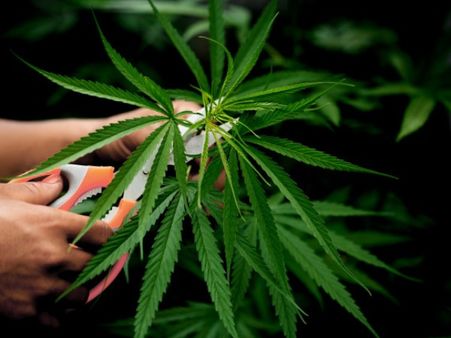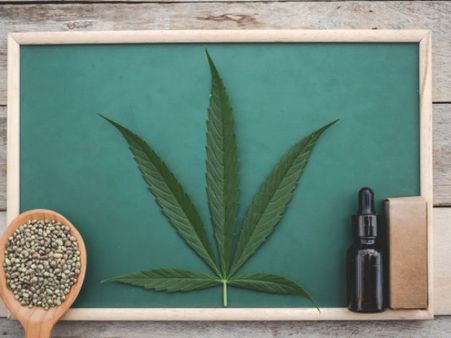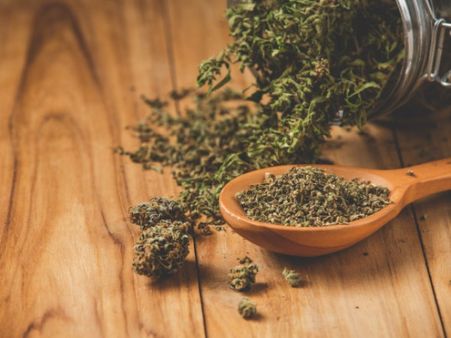Just In
- 6 hrs ago

- 7 hrs ago

- 10 hrs ago

- 10 hrs ago

Don't Miss
- Finance
 IndusInd Bank Q4 Results: PAT Soars 15% To Rs 2,349 Cr, NII Climbs 15%; 165% Dividend Declared
IndusInd Bank Q4 Results: PAT Soars 15% To Rs 2,349 Cr, NII Climbs 15%; 165% Dividend Declared - Movies
 Dance Deewane 4: Madhuri Dixit, Suniel Shetty, Karisma Kapoor Dance On Chak Dhoom Dhoom With Chikoo, Bunty- PI
Dance Deewane 4: Madhuri Dixit, Suniel Shetty, Karisma Kapoor Dance On Chak Dhoom Dhoom With Chikoo, Bunty- PI - News
 Who Is Lisa Pisano, New Jersey Woman Gets Pig Kidney Transplant And Heart Pump?
Who Is Lisa Pisano, New Jersey Woman Gets Pig Kidney Transplant And Heart Pump? - Sports
 Pakistan vs New Zealand 4th T20 Live Score, Latest Updates From Lahore: Tom Blundell, Tim Robinson Open NZ Innings
Pakistan vs New Zealand 4th T20 Live Score, Latest Updates From Lahore: Tom Blundell, Tim Robinson Open NZ Innings - Automobiles
 Royal Enfield Unveils Revolutionary Rentals & Tours Service: Check Out All Details Here
Royal Enfield Unveils Revolutionary Rentals & Tours Service: Check Out All Details Here - Technology
 Elon Musk’s X Is Launching a TV App Similar to YouTube for Watching Videos
Elon Musk’s X Is Launching a TV App Similar to YouTube for Watching Videos - Education
 AICTE introduces career portal for 3 million students, offering fully-sponsored trip to Silicon Valley
AICTE introduces career portal for 3 million students, offering fully-sponsored trip to Silicon Valley - Travel
 Escape to Kalimpong, Gangtok, and Darjeeling with IRCTC's Tour Package; Check Itinerary
Escape to Kalimpong, Gangtok, and Darjeeling with IRCTC's Tour Package; Check Itinerary
How Marijuana Or Pot Affects Your Body And Mind
Mary Jane, pot, weed, grass, 420 or ganja, these street names all define one thing: marijuana. A controversial topic of discussion, scientifically termed Cannabis, marijuana has witnessed an ever-increasing acceptance within society in the past few years - especially with several countries legalising the recreational and medical use of marijuana.
While Cannabis has been used for its medicinal properties for ages, countries such as Jamaica, Uruguay, Netherlands, Spain, Switzerland, Canada, etc. are places where one can use the 420-herb without the worry of being policed or fined.

A plethora of studies has pointed out the health benefits of marijuana consumption. One of the prominent uses is treating the symptoms of cancer and side effects of chemotherapy, such as nausea and vomiting [1].
Many biologically active components in marijuana, called cannabinoids, have been identified. The two best-studied components are the chemicals delta-9-tetrahydrocannabinol (often referred to as THC), and cannabidiol (CBD). Other cannabinoids are being studied [2][3].

In Indian society, common cannabis preparations include bhang lassi and bhang thandai. As of 2000, the prevalence of usage of Cannabis in India was 3.2 per cent. Although consumption of bhang is allowed in the country, various states have their own laws banning or restricting its use.
In July 2019, the Delhi High Court agreed to hear a petition, filed by the Great Legalisation Movement Trust, challenging the ban on Cannabis.

Why Does Consuming Marijuana Make You High?
The herb gets its psychoactive property due to tetrahydrocannabinol (THC), one of 483 known compounds in the plant. This is the reason why marijuana can leave you feeling 'high' or 'stoned', having mental and physical effects on the individual using it [4]. On being smoked, the effect is immediate, whereas it takes more time when cooked and consumed.
The THC in marijuana stimulates the part of your brain that responds to pleasure, like food and sex and unleashes the chemical dopamine (the feel-good hormone), which gives you a euphoric, relaxed feeling [5].
When smoked, THC from marijuana enters your bloodstream quickly to get your high in seconds or minutes. As studies point out, the THC level usually peaks in about 30 minutes, and the effects may wear off in 1-3 hours. If you eat or drink the herb, you may take hours to sober up [6].

How Does Marijuana Affect Your Body And Mind?
From relieving stress to improving your immune system, marijuana can help eliminate pain and prevent cognitive decline. However, not everyone will share a similar experience. First things first, let us take a look at the medical health benefits of marijuana on your body and mind.

Health benefits of marijuana:
- Marijuana helps decrease the pressure on the eyeballs (intraocular pressure), hence helping prevent glaucoma [7].
- Marijuana can help control episodes in an epileptic individual. The active ingredient (THC) found in marijuana can bind the brain cells responsible for controlling excitability and relaxing [8].
- Marijuana can prevent cancer cells from spreading by compromising a gene called Id-1 [9].
- The psychotropic activity of THC helps improve one's mood and reduce the stress levels, anxiety and depression symptoms [10][11].
- Studies have suggested that marijuana can help control the pain caused by multiple sclerosis by blocking the pain from reaching the receptors in the nerves [12].
- Marijuana is asserted to be beneficial in treating inflammatory bowel diseases such as Crohn's or ulcerative diseases [13].
- Marijuana helps relieve pain and tremors and improve the sleep of patients suffering from Parkinson's disease [14].
- The relaxing effects of marijuana can help people with PTSD (post-traumatic stress disorder) [15].
- One of the other major benefits of marijuana is its sedative property, which can improve sleep quality [16].
Now that you are aware of the health benefits of marijuana, let's take a more in-depth look into how smoking marijuana can affect your mind and body.

How Does Smoking Marijuana Affect Your Mental Health?
Of course, smoking marijuana does not come without risks, especially if one does it every day. The herb's impact varies depending on the potency of the pot, the way of use, and your history of use. According to studies, these are the ways marijuana can affect your mind:
- Marijuana can cloud your senses and judgment and lower your inhibitions.
- It may heighten your senses, such as colours may seem brighter, and sounds can seem louder [17].
- It may distort your sense of time.
- It may interfere with your motor skills (best to avoid driving while high).
- One may develop Cannabis Use Disorder (CUD), a high dependency on nature's drug, leading to decreased reactivity to dopamine [18].
- It can adversely affect coordination and response time, and short-term memory is often impaired.
- In some people, regular marijuana use can worsen anxiety.


What Are The Side Effects Of Using (Smoking, Eating, Drinking) Marijuana?
One in 10 people who use marijuana will become addicted [18]. Health experts say that the risk of marijuana addiction is higher when an individual is young; that is, the odds of addiction are 1 in 6 if you use weed in your teens.
These are some of the side effects reported with excessive marijuana use:
- Possibilities of being physically dependent on marijuana are high in regular users. This physical dependence can cause irritability, restlessness, lack of sleepand appetite[19].
- Marijuana may impair your brain, making it harder for you to focus, learn, and remember things (this is mostly a short-term side-effect). Some studies have shown that marijuana may physically change the adolescent brain [20].
- It can cause inflammation and irritation in the lungs and may cause breathing problems. This also increases one's risk of contracting respiratory diseases because THC may weaken the immune system [21].
- Marijuana may weaken your heart because it makes your heart beat faster (from 50-70 times a minute to 70 to 120 beats or more per minute for 3 hours) [22]. This may result in an increased risk of heart issues.
- Pregnant women who smoke can face the risk of giving birth to underweight or premature babies. It may cause fertility and pregnancy issues.
- It may cause changes in your endocannabinoid system, that is, your body's natural processes, like your sleeping habits, mood, appetite, memory, and fertility.
- Mixing alcohol with marijuana increases the risks by double.
- Anxiety
- Nausea and vomiting
- Excessive hunger
- Dry mouth
- Confusion
- Dizziness
- Fatigue
While these are the side effects on the heavier note, the most common side effects of marijuana use are as follows [23]:

What Are The Signs Of Marijuana Addiction?
According to the National Institute on Drug Abuse, about 9 per cent of people who use marijuana become addicted [24]. Marijuana addiction is not associated with overdose death like other drugs. Still, it can have other adverse effects, and the signs of marijuana addiction are as follows:
- Lack of interest in activities (social and recreational)
- Relationship problems (when one puts less effort into your friendships, family, or romantic relationships because of marijuana use)
- Signs of withdrawal symptoms such as irritability, restlessness, sweating, tremors, or chills [25]
- Increased tolerance
- Inability to stop the use or take a break

On A Final Note…
Marijuana has been a debatable topic for a very long time now. While some societies look at it as a tabooed indulgence, others see it as a way of life.
The article does not promote smoking or the recreational use of marijuana and other illegal marijuana products. The article is solely developed for informational purposes.
-
 disorders cureCannabis Hyperemesis Syndrome Diagnosed In Woman Who Couldn't Stop Puking For Two Years: Read All About It!
disorders cureCannabis Hyperemesis Syndrome Diagnosed In Woman Who Couldn't Stop Puking For Two Years: Read All About It! -
 wellnessHigh-potency Cannabis Use Increases The Risk Of Psychosis And Addiction; Study
wellnessHigh-potency Cannabis Use Increases The Risk Of Psychosis And Addiction; Study -
 wellnessMarijuana May Become A Cure For Alzheimer's, Study
wellnessMarijuana May Become A Cure For Alzheimer's, Study -
 wellnessMarijuana May Not Be Effective In Treating Mental Health Problems, New Study Explains Why
wellnessMarijuana May Not Be Effective In Treating Mental Health Problems, New Study Explains Why -
 body care7 Wonderful Beauty Benefits Of Marijuana For Skin And Hair
body care7 Wonderful Beauty Benefits Of Marijuana For Skin And Hair -
 wellness10 Amazing Health Benefits Of Marijuana
wellness10 Amazing Health Benefits Of Marijuana -
 disorders cureCannabinoid Hyperemesis Syndrome: Causes, Symptoms & Treatment
disorders cureCannabinoid Hyperemesis Syndrome: Causes, Symptoms & Treatment -
 wellnessMarijuana May Up Psychosis Risk In teenagers And Young Adults
wellnessMarijuana May Up Psychosis Risk In teenagers And Young Adults -
 wellnessThis Ingredient Helps Cut Seizures In Rare Epilepsy Disorder
wellnessThis Ingredient Helps Cut Seizures In Rare Epilepsy Disorder -
 wellnessSecondhand Weed Smoke Dangerous For Blood Vessels - Warns Study
wellnessSecondhand Weed Smoke Dangerous For Blood Vessels - Warns Study -
 wellnessMarijuana Quashes Brain's Response To Reward Over Time
wellnessMarijuana Quashes Brain's Response To Reward Over Time -
 thoughtMarijuana And Spirituality. What Is The Connection?
thoughtMarijuana And Spirituality. What Is The Connection?


 Click it and Unblock the Notifications
Click it and Unblock the Notifications




